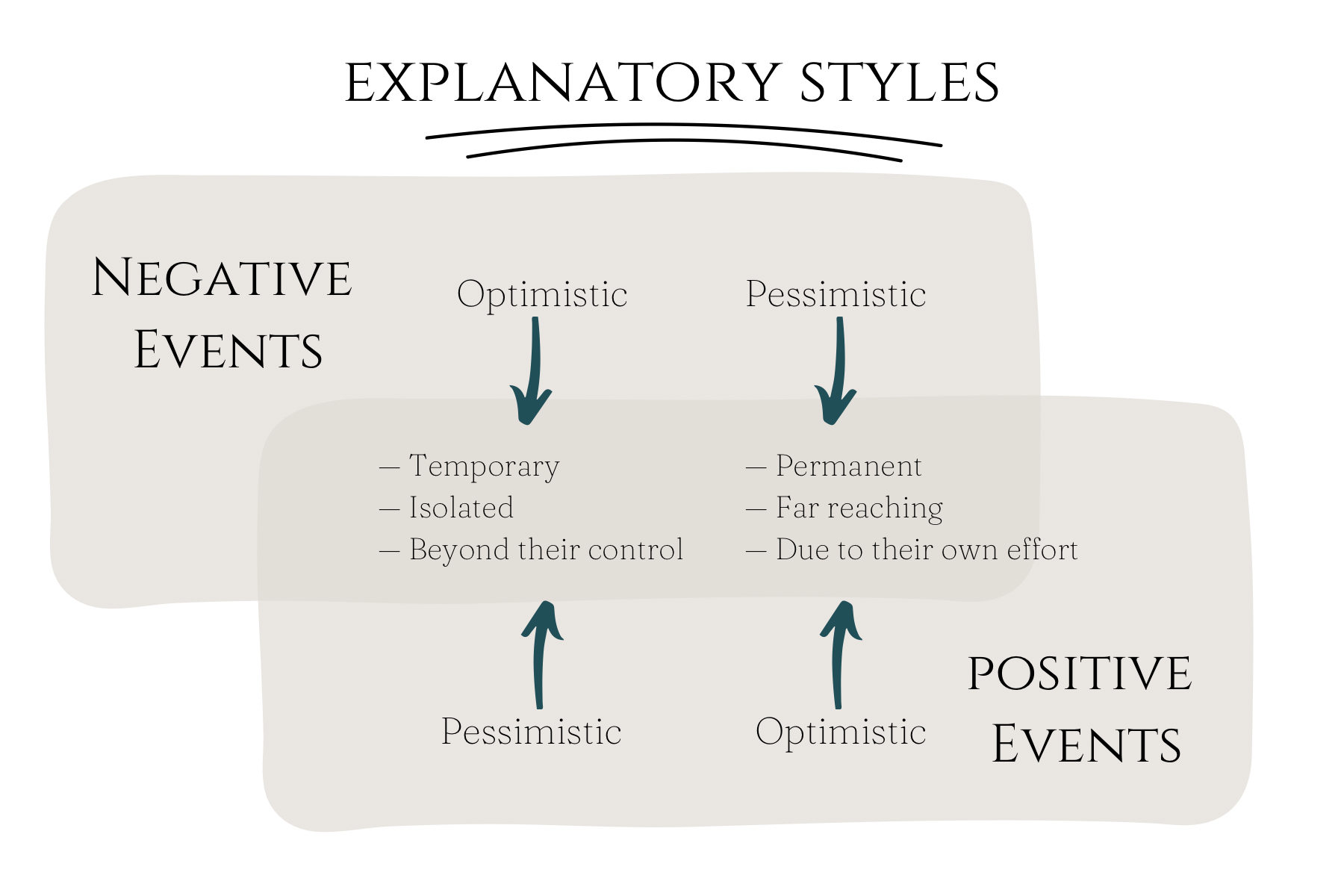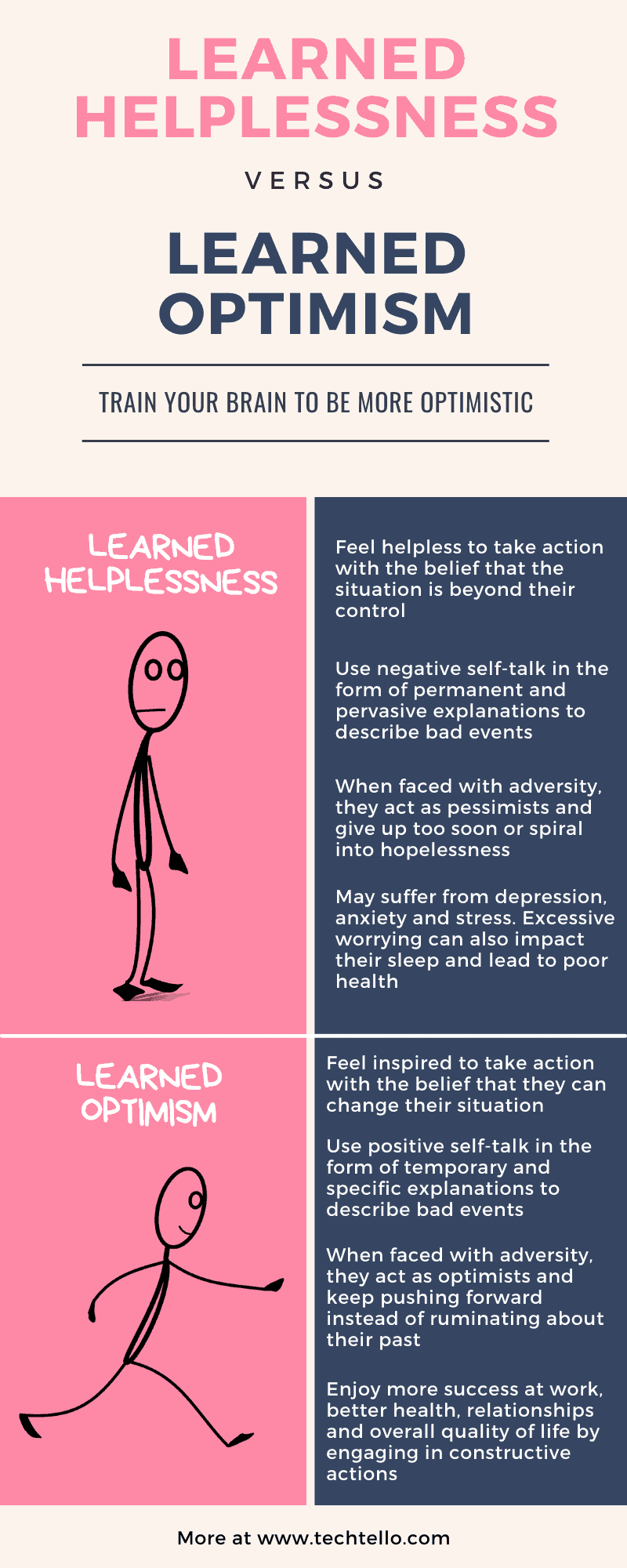How Changing the Way You Think Can Change Your Life
Book Review:
Learned Optimism: How to Change Your Mind and Your Life
Martin E.P. Seligman, Ph.D
I love to read! It’s a wonderful way for me to relax and to learn. When I find a great book to recommend I am always excited to share it! One of my 2023 New Years Resolutions was to prioritize reading more. Using the SMART goal setting method (Specific, Measurable, Achievable, Realistic, and Timely) I compiled a list of books I intend to read by years end. This list was compiled based on recommendations from friends/family and from various professional networks. I wish I could remember who recommended Learned Optimism, but alas! I can only offer my gratitude out into the universe to whomever it was.
Recommended for:
Coaches, Teachers, Business Leaders, Parents and anyone who wants to make positive shifts in their life or the lives of others.
About the Author
Learned Optimism: How to Change Your Mind and Your Life is written by Martin Seligman PhD, an American psychologist, educator and author, known for his research, theories and impact on positive psychology. He is best known for developing the concept of learned helplessness, which he studied as an extension of his interest in depression.
Dr. Seligman, is a professor at the University of Pennsylvania, director of the Positive Psychology Center, and former president of the American Psychological Association. He was named the most influential psychologist in the world by Academic Influence. Along with writing for numerous scholarly publications and appearing in The New York Times, Time, Newsweek, and many others, he is also the author and coauthor of over thirty books including the national best seller Authentic Happiness.
Background
Learned helplessness is a behavioral state that can occur after someone has repeatedly endured a harmful or stressful situation beyond their control. In this state, they come to believe that they are powerless or unable to control or change the situation, so they do not even try, even when opportunities for change become available.
Why is this behavioral state important?
Because, researchers have found a strong correlation between depression-like symptoms and learned helplessness.
According to Dr. Seligman’s research, how someone interprets or explains events in their life can affect their likelihood of acquiring learned helplessness and subsequent depression. He finds that, “How you think about your problems, including depression itself, will either relieve depression or aggravate it.” (Ch. 5 - How You Think, How You Feel)
Notably, “Women are twice as likely to suffer depression as men are, because on the average they think about problems in ways that amplify depression. Men tend to act rather than reflect, but women tend to contemplate their depression, mulling it over and over, trying to analyze it and determine its source.” (Ch. 5 - How You Think, How You Feel)
In the book, Dr. Seligman detailed studies on a range of populations including rats, dogs, college students, life-insurance sales representatives, Olympic swimmers, professional sports teams, cancer patients, politicians and others. I base my massage practice on evidence-based findings and medical research, which means I really value these same qualities in my continued studies and reading. I loved that Dr. Seligman included so much of his research practices, and showed how people from all walks of life were affected and how they could see benefits.
Throughout the book, the concrete examples and clinical research Dr. Seligman referenced showed the effects of an optimistic/pessimistic explanatory style on quality of life and its implications for health, wellness, success, performance and happiness.
Health Implications
People who perceive events as uncontrollable are not only more prone to depression—they experience a variety of symptoms that can threaten their mental and physical well being. They are more prone to depression, experience more stress, and may experience difficulty performing cognitive tasks such as problem-solving. People exhibiting a pessimistic explanatory style are also more susceptible to weakened immune systems. This includes increased vulnerability to minor ailments (like fevers and colds) and major illnesses (like heart attacks and cancer). A pessimistic explanatory style can also result in a poorer recovery from any health problems. People who perceive events as uncontrollable AND have a pessimistic explanatory style are even less likely to change unhealthy patterns of behavior, which can cause them to neglect their physical and mental health, their diet, exercise and even necessary medical treatment.
Why is this research important?
The big takeaway - In all human studies, the author found that, “Over and above their talent-test scores, we repeated find that pessimists drop below their “potential” and optimists exceed it.” (Ch 8 - School)
As Dr. Seligman says, “If you are a coach or.a serious athlete, you must take these findings seriously. They have immediate, practical implications for you.” (Ch 9 - Sports).
The research shows the limiting effects a pessimistic explanatory style can have. Learning to improve your explanatory style to a more optimistic one can help inoculate you from experiencing learned helplessness, prevent/improve depression, boost your immune system, better develop your potential and help you lead a healthier, happier, more successful life.
Key Takeaways:
This book will help you learn to:
Understand how what you think impacts your health, wellness and performance
Recognize your own explanatory style — what you say to yourself about positive/negative events and how it influences your life
Boost your mood AND your immune system
Help your children to practice the thought patterns that encourage optimism
Improve your performance as a parent, a spouse/partner, an athlete, at work, and in professional settings
Additional Resources:
Cherry, Kendra. 2021. Using Learned Optimism in Your Life. Medically reviewed by Rachel Goldman, Ph.D, FTOS. Very Well Mind.
Chowdhury, Madhuleena Roy, BA. 2019. 11 Optimism Exercises & Theories. Scientifically reviewed by Jo Nash, Ph.D. Positive Psychology.
Moore, Catherine. 2019. Learned Optimism: Is Martin Seligman’s Glass Half Full? Scientifically reviewed by Jo Nash, Ph.D. Positive Psychology.
Sources:
Infographic. Learned Helplessness Learned Optimism. StudyLib.
Seligman, Martin Ph.D. 1991. Learned Optimism: How to Change Your Mind and Your Life. New York: Knopf.
Wikipedia. Learned Helplessness.
Wikipedia. Learned Optimism.
Wikipedia. Martin Seligman.
Link to purchase: Learned Optimism: How to Change Your Mind and Your Life
Disclaimer: Maine Seastone Studios is a participant in the Amazon Services LLC Associates Program—an affiliate advertising program designed to provide a means for sites to earn advertising fees by advertising and linking to products on Amazon.com and affiliated sites. This post may include affiliate links. If you click one of them, I may receive a commission at no extra cost to you.
Please note that I have not been given any free products, services, or anything else in exchanged for mentioning products on this site. As an affiliate, I only recommend products and services that I myself have purchased, used and love.
When possible, I encourage you to purchase products from small businesses in your local community.







